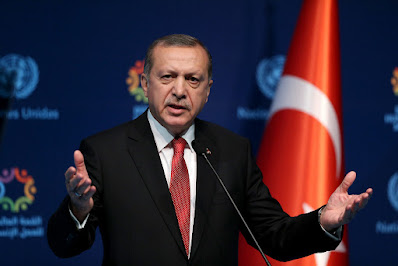 |
| Tayyip Erdoğan |
Turkey has a rich history and its presidents have played a significant role in shaping the country's political landscape. From Mustafa Kemal Atatürk, the founder of the Republic of Turkey, to the current President, Recep Tayyip Erdoğan, Turkish presidents have had a profound impact on the nation's domestic and foreign policies.
Mustafa Kemal Atatürk was the first President of Turkey, serving from 1923 to 1938. He is widely regarded as the father of modern Turkey and is remembered for his sweeping reform efforts, which transformed the country from an Ottoman Empire to a secular and democratic nation. Atatürk implemented sweeping changes to the legal system, education, and civil service, and he promoted the adoption of a new Turkish alphabet and the adoption of a Western-style legal system.
After Atatürk's death in 1938, Ismet Inönü served as President until 1950. Inönü continued many of Atatürk's policies and is credited with leading the country through World War II. He also played a significant role in the negotiations that led to the creation of the United Nations.
Celal Bayar succeeded Inönü as President in 1950 and served until 1960. During his tenure, Bayar implemented economic and social reforms, including the establishment of a minimum wage and the expansion of the country's social security system. He also worked to improve relations with other countries and played a key role in Turkey's efforts to join the European Economic Community.
In 1960, Cemal Gürsel became President and served until 1966. Gürsel implemented significant economic reforms and encouraged the development of the country's industrial sector. He also played a role in improving relations between Turkey and its neighbors, including Greece and Cyprus.
After Gürsel's death in 1966, Fahri Korutürk served as President until 1973. Korutürk continued many of the economic and social reforms implemented by his predecessors and worked to improve relations with other countries. He also oversaw the expansion of the country's transportation and communication infrastructure.
In 1973, Turkey experienced a military coup and the country was ruled by a series of military governments until 1983. During this time, the country's presidents were chosen by the military.
In 1983, Turgut Özal was elected as President and served until his death in 1993. Özal implemented significant economic reforms and is credited with transforming Turkey into a major industrial power. He also worked to improve relations with other countries and played a key role in the country's efforts to join the European Union.
Süleyman Demirel served as President from 1993 to 2000. Demirel implemented economic and social reforms and worked to improve relations with other countries. He also oversaw the expansion of the country's transportation and communication infrastructure.
Ahmet Necdet Sezer served as President from 2000 to 2007. Sezer implemented significant legal and judicial reforms and worked to improve relations with other countries. He also played a key role in the country's efforts to join the European Union.
Recep Tayyip Erdoğan has served as President of Turkey since 2007. During his tenure, he has implemented significant economic and social reforms and has worked to improve relations with other countries. He has also played a key role in the country's efforts to join the European Union.
In conclusion, Turkish presidents have played a significant role in shaping the country's political landscape and have had a profound impact on its domestic and foreign policies. From Atatürk, the founder of the Republic of Turkey, to the current President, Erdoğan, each president has contributed to the development and progress of the nation.





No comments:
Post a Comment